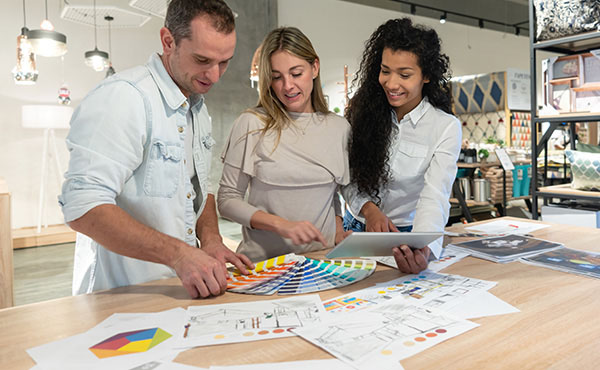Choosing the Right Interior Designer for Your NZ Bar, Restaurant or Cafe: A Game Changer

The hospitality industry in New Zealand is thriving, with bars, restaurants, and cafes constantly seeking ways to stand out in a competitive market. One crucial factor that can set your establishment apart is the interior design. A well-designed space not only enhances the overall dining or drinking experience but also attracts and retains customers. In this article, we will delve into the importance of choosing the right interior designer for your NZ bar, restaurant, or cafe and how it can be a game-changer for your business.
The Significance of Interior Design in Hospitality:
The interior design of a hospitality establishment plays a pivotal role in shaping the customer’s perception and experience. It goes beyond just aesthetics, influencing the atmosphere, functionality, and overall ambiance. A thoughtfully designed interior can evoke emotions, create a unique identity, and leave a lasting impression on patrons. In the competitive world of bars, restaurants, and cafes, a well-designed space can be a powerful marketing tool.
Understanding Your Brand Identity:
Before embarking on the journey of selecting an interior designer, it’s crucial to have a clear understanding of your brand identity. Consider the theme, target audience, and the type of experience you want to offer. Are you aiming for a cozy and intimate atmosphere, or a vibrant and energetic space? Knowing your brand identity will guide the designer in creating a cohesive and resonant interior that aligns with your business goals.
Researching Potential Designers:
Once you have a solid grasp of your brand identity, the next step is to research potential interior designers, particularly in Wellington. Look for professionals with experience in the hospitality sector, as they will have a better understanding of the specific requirements and challenges faced by bars, restaurants, and cafes. Browse through portfolios, read client reviews, and consider the range of styles each designer specializes in. When seeking interior designers in Wellington, ensure they possess the expertise needed to align your establishment with the unique character of the city.
Consider Local Expertise:
Opting for a local interior designer has its advantages. They are likely to be familiar with the local culture, trends, and regulations. Additionally, a local designer may have established relationships with suppliers and contractors in the area, potentially streamlining the design and implementation process. Local expertise can contribute significantly to the success of your project.
Portfolio and Style Compatibility:
Reviewing the portfolios of potential designers is essential to assess their style and versatility. Look for designers who have successfully executed projects similar to your vision. It’s crucial to find a designer whose aesthetic aligns with your brand identity. While a designer may have a signature style, their ability to adapt and tailor their approach to match your concept is equally important.
Budget Considerations:
Clearly define your budget early in the selection process. Communicate your financial constraints to potential designers and ensure they can work within those parameters. Transparency about budget constraints from the beginning helps in avoiding misunderstandings and ensures that the final design is not only visually appealing but also financially viable.
Collaboration and Communication:
Effective communication is key to a successful collaboration between you and your chosen interior designer. The designer should be willing to listen to your ideas, understand your vision, and provide constructive input based on their expertise. Regular updates, open dialogue, and a collaborative approach will lead to a design that truly reflects your brand.
Sustainability and Longevity:
Incorporating sustainable and durable materials in the design is not only environmentally responsible but also contributes to the long-term success of your establishment. A well-thought-out interior design should withstand the test of time, avoiding trends that might quickly become outdated. Consider the longevity and practicality of the design elements proposed by the designer.
Project Management and Timelines:
Inquire about the designer’s project management capabilities and timelines. A well-organized designer will have a structured approach to the design and implementation process, ensuring that the project stays on track and is completed within the agreed-upon timeframe. Delays in the opening of your establishment can have financial implications, so a punctual and efficient designer is crucial.
Conclusion:
Choosing the right interior designer for your NZ bar, restaurant, or cafe is a decision that can profoundly impact the success of your business. By understanding your brand identity, researching potential designers, considering local expertise, and emphasizing effective communication, you can ensure a collaborative and successful design process. The investment in a well-designed interior is not just about aesthetics; it’s about creating an immersive experience that resonates with your customers and keeps them coming back for more. In a competitive market, the right interior design can be a game-changer that sets your establishment apart and contributes to its long-term success.




Leave a Reply